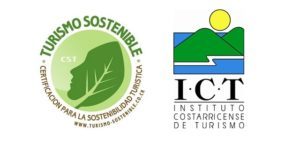The tourism sector continues to experience continuous growth to become one of the fastest rising economic sectors in the world. Nowadays, it is finally recognized as a key engine of socioeconomic progress that benefits communities globally.

In fact, the United Nations World Tourism Organization (UNWTO) confirms that today, tourism represents 10% of the world GDP, 7% of global trade, and provides 1 out of 11 jobs worldwide. Likewise, the fact that more than 1.3 billion people travel to other countries -in just 1 year- means that tourism has become a force for intercultural dialog, social inclusion, peace, reconciliation, and sustainable development (UNWTO, 2018).
The new process to obtain the “Certificate for Tourist Sustainability” (CST) is carried out online, without the need for printed documentation. The application is reviewed by a group of certified leading auditors. In fact, this digitization has reduced the process to an average of 3 to 4 months; before, it took between 6 and 8 months to be completed.
“We innovate and modernize this certification tool so that it is in line with the digital era, simplifying the process, and seeking greater penetration of the CST to recognize the excellent management of companies and organizations that actively work to mitigate the impacts resulting from its operations in the sector”, said the Minister of Tourism, María Amalia Revelo.
The CST standard, based on this transformation, strengthens the social, cultural, economic, and development activities in tourist destinations, and also reinforces the positioning of Costa Rica as a leader and pioneer in sustainable tourism.
Recently the CST was updated with the start of the pilot plan in the first companies, as well as the holding of informative workshops in the different tourist regions of the country to instruct interested companies about the new certification process, which includes a self-evaluation, the application of an audit, and the certification request as such. Then, the Technical Verification Commission certifies the applicant company.
Companies allied with the CST
It is also important to mention that, currently, more than 400 companies have the CST standard. In the medium term, the certification will be distributed in 2 levels: Basic or Elite. In fact, certified companies receive special benefits from the official Costa Rican Institute of Tourism (ICT), like discounts for participation in international fairs, priority in national and international promotion campaigns and the inclusion in visits of international agents or journalists to Costa Rica, among others.

This certification has contributed to addressing the global challenges identified in the United Nations Development Goals for the Millennium (MDG), in 2000; the current 17 Sustainable Development Goals (SDGs), in 2030; and to influence the contribution that the tourism sector can make to achieve all the aforementioned objectives. One of these proposals is, for example, highlighting the opportunities for sustainable tourism development provided by innovative technological advances, as well as more sustainable, inclusive, and intelligent tourism management.
It is considered very important to point out that innovation is not only technological. It is also necessary to improve the inclusion of the growing senior population, the functional diversity collective, and the LGBT group. Part of this can be undertaken with creative ideas in participatory methodologies in training, among others. This can be done not merely with a technological base, thus committing to raising awareness of the importance of making efficient use of resources, to being aware of the impacts that are generated, and by taking measures to move steadily towards sustainability and inclusion for all, in Costa Rica and -why not?- worldwide.

